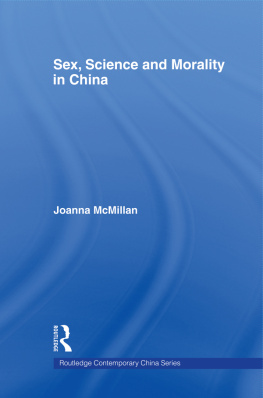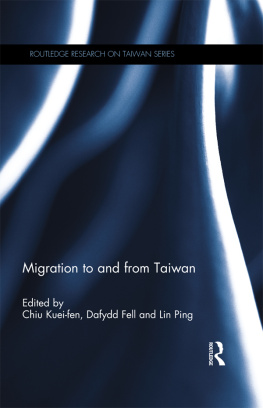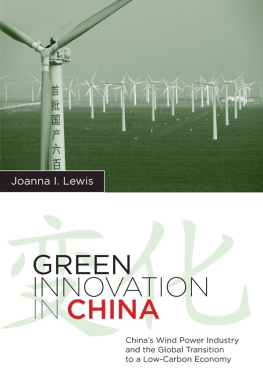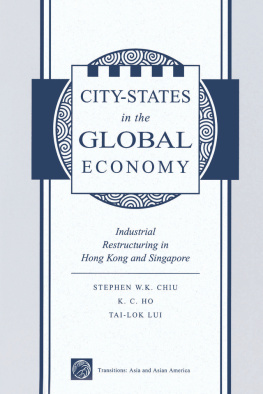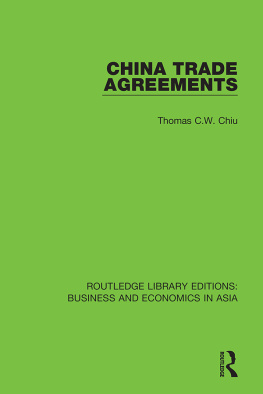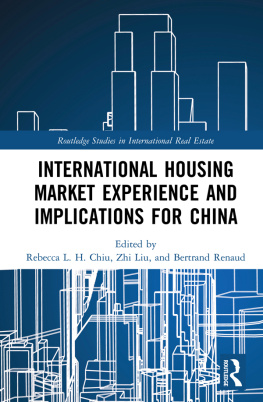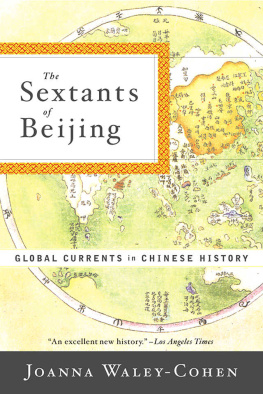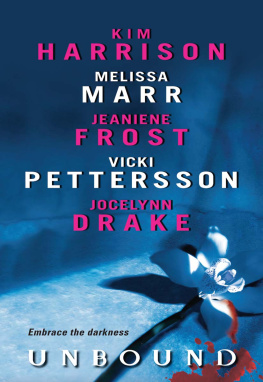Joanna Chiu - China unbound : a new world disorder
Here you can read online Joanna Chiu - China unbound : a new world disorder full text of the book (entire story) in english for free. Download pdf and epub, get meaning, cover and reviews about this ebook. year: 2021, genre: Politics. Description of the work, (preface) as well as reviews are available. Best literature library LitArk.com created for fans of good reading and offers a wide selection of genres:
Romance novel
Science fiction
Adventure
Detective
Science
History
Home and family
Prose
Art
Politics
Computer
Non-fiction
Religion
Business
Children
Humor
Choose a favorite category and find really read worthwhile books. Enjoy immersion in the world of imagination, feel the emotions of the characters or learn something new for yourself, make an fascinating discovery.

- Book:China unbound : a new world disorder
- Author:
- Genre:
- Year:2021
- Rating:5 / 5
- Favourites:Add to favourites
- Your mark:
- 100
- 1
- 2
- 3
- 4
- 5
China unbound : a new world disorder: summary, description and annotation
We offer to read an annotation, description, summary or preface (depends on what the author of the book "China unbound : a new world disorder" wrote himself). If you haven't found the necessary information about the book — write in the comments, we will try to find it.
China unbound : a new world disorder — read online for free the complete book (whole text) full work
Below is the text of the book, divided by pages. System saving the place of the last page read, allows you to conveniently read the book "China unbound : a new world disorder" online for free, without having to search again every time where you left off. Put a bookmark, and you can go to the page where you finished reading at any time.
Font size:
Interval:
Bookmark:

...
The world rising to its feet depends
on whether you can sleep on one leg gracefully
The wind would make it difficult for us ...
The world has limits, so that we can see you stand
sharply against the numbness of humanity
The Books of Cranes by poet
Zang Di (b.1964), translated by
Ming Di and Neil Aitken
Mainland China is the geographical area of the Peoples Republic of China (PRC). It doesnt include the semi-independent Chinese cities of Hong Kong and Macau.
Mandarin is the standard language of mainland China. The romanization system is Pinyin, which is used over the older Wade-Giles system, where Beijing was Peking. Some Wade-Giles spellings for historical figures are common, however, such as Chiang Kai-shek and Sun Yat-sen.
Cantonese is spoken primarily in Hong Kong, Macau, and southeastern Chinas Guangdong province.
For both Mandarin and Cantonese names, surnames come first, before personal names.
Uyghur: The minority ethnic group is pronounced WEE-guhr.
Tibetan names: Family surnames are rare. For example, a common Tibetan name is Tenzin, which means holder of the teaching and is the personal name of the fourteenth Dalai Lama.
Chinese women generally do not take the surname of their husband. Some surnames are very common, so its best to not assume that people sharing the same name are related.
This book uses the terms Belt and Road and The New Silk Road interchangeably.
Like rolling thunder, 2,008 drummers in shimmering robes drummed to the same beat, marking the start of the four-hour spectacle that was the Summer Olympics opening ceremony in Beijing.
As they danced around the traditional bronze drums, the musicians sang out a quote from the Analects of Confucius: Isnt it delightful to have friends coming from afar?
Following close behind, fifteen thousand performers in elaborate costumes swept across the Birds Nest stadium in a carefully choreographed celebration of Chinese history. They showcased the nations four great inventions the compass, gunpowder, paper, and the printing press and then artifacts gave way to a kaleidoscopic light show representing Chinas hopes of harmony between the peoples of the world.
By all measures, the 2008 ceremony was a fantastic success, its scale easily outstripping that of any Olympic opening of the past. The Summer Games were an opportunity for Beijing to present its best and most benign face to the world, from its long history and multi-ethnic cultures to its many technological innovations. It brought a surge of hope in the country, as well as around the world, that as China rose in global status its ascent would be beneficial to global communities.
Despite all the messages of friendship, however, Chinese Olympic athletes were under great pressure from the government to trounce the competition. Thousands of dedicated sports schools in the country had trained children intensively from six years old, leaving little time for an academic education. Many athletes developed chronic health problems, while others faced limited prospects if they failed to become stars. China wanted to present a friendly face to the international community, but it also wanted respect.
More than a dozen years after that triumphant ceremony, Beijing is no longer broadcasting songs of friendship to the world. Now Chinese officials engage in wolf warrior diplomacy, uttering threats at any perceived slight to their countrys pride.
Was that grand show of affection always just fiction?
I sought the opinion of Jan Wong, the first Canadian journalist of Chinese descent to serve as bureau chief of the Globe and Mail newspapers Beijing outpost, from 1988 to 1994. Before that, in 1972, Wong had travelled from her hometown of Montreal to Beijing as an international university student. China was closed off to most Western visitors until the 1970s, as it suffered tumultuous years of internal conflict during the Cultural Revolution.
Wong recalled coming to China at a time of tentative social recovery when Chinese leaders and citizens expressed a genuine desire for global friendship. I remember in those days, if you just showed up in China, they were so grateful you were there. Because everyone was tilting to [formal diplomatic relations with] Taiwan. And the Chinese were always talking about the friendship between their country and your country.
The Canadian hockey team went to China, and they were playing at the recently built Capital Indoor Stadium. I got a ticket, and they were playing a team from Harbin. And everyone was chanting, You yi di yi. bi sai di er. The whole stadium. Friendship first, competition second.
So its completely different now, and now they are bullies. China went from being the underdogs to the bullies. Theyre still not confident; they still have this residual complex, like they want respect and everything is about respect. Theyre really thin-skinned and jump to conclusions, thinking other countries dont respect them. But they have so much clout now.
Wong and I were speaking in mid-2019, in the aftermath of Beijings arrest of two Canadians in China: my friend Michael Kovrig, who is a diplomat-on-leave, and Michael Spavor, an entrepreneur. The move was in retaliation for Canadas detention of Huawei CFO Meng Wanzhou at the request of American authorities. The Americans wanted Meng extradited to the United States to face fraud charges, but authorities seemed to underestimate the tech executives level of influence and how her arrest would enrage Chinas leaders.
The hostage-taking of the Canadian men took the Western world by surprise; until then, it had been widely ignorant of the many times China had taken foreigners of Asian descent as political prisoners. The cruel treatment of the two Michaels also dismantled a longstanding myth that China was heading in a liberal direction.
Many Westerners had accepted the idea that as China opened up to the world, things would get better. By the early 1980s, the Peoples Republic of China was introducing market reforms and establishing diplomatic ties with more countries. The Communist world was gradually liberalizing its authoritarian systems and would soon become just like us.
The 1989 Tiananmen massacre of mostly young pro-reform protesters in Beijing shattered these hopes. People around the world watched in shock; they couldnt believe Chinese troops had opened fire on their own people, killing hundreds, perhaps thousands, of peaceful demonstrators.
Decades later, however, the myth of a liberalizing China still persisted, and it wasnt just Americans who believed it. China became a member of the World Trade Organization (WTO) on December 11, 2001, after a lengthy process of debate and negotiation. Beijings successful entry into the WTO was, at the time, deeply symbolic of the countrys integration into a global order based on the rule of law.
Western leaders were optimistic. Bill Clinton said in a memorable 2000 speech, The WTO agreement will... advance the goals America has worked for in China for the past three decades. Membership in the WTO would not create a free society in China overnight or guarantee that China would always play by global rules, but over time, Clinton said, China would move in the right direction.
But the opposite happened. As China became richer, it became more authoritarian. The state retained significant control over its economy and mammoth state-owned enterprises under a philosophy called socialism with Chinese characteristics. Officials have returned to large-scale persecution of scholars, lawyers, artists, activists, and minorities. Targets include an estimated million Uyghurs in internment camps.
Next pageFont size:
Interval:
Bookmark:
Similar books «China unbound : a new world disorder»
Look at similar books to China unbound : a new world disorder. We have selected literature similar in name and meaning in the hope of providing readers with more options to find new, interesting, not yet read works.
Discussion, reviews of the book China unbound : a new world disorder and just readers' own opinions. Leave your comments, write what you think about the work, its meaning or the main characters. Specify what exactly you liked and what you didn't like, and why you think so.

